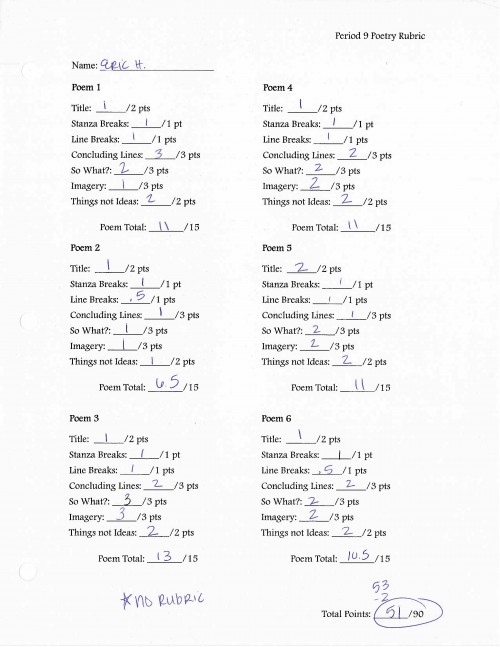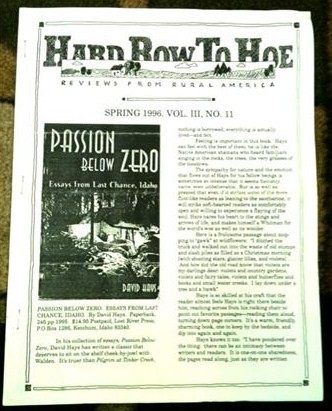The Ellipsis
 A couple nights ago, I went to this experimental improv music thing in Toronto, which was all sorts of interesting, but that’s really neither here nor there. During intermission, this irrelevant artist was showing off to a friend of mine about his most recent publication, which was about, get this: the ellipsis.
A couple nights ago, I went to this experimental improv music thing in Toronto, which was all sorts of interesting, but that’s really neither here nor there. During intermission, this irrelevant artist was showing off to a friend of mine about his most recent publication, which was about, get this: the ellipsis.
He made the argument that the ellipsis gives readers authority over both text and author, they can “fill in” what the writer “left out.” Unfortunately, he didn’t think I was “anyone,” so he never engaged me in conversation, more or less just looked at me like I was a moron, if anything. But he made an impassioned argument to my friend about the ellipsis gives the reader control, let’s them take back the text from the author-narrator, that anything can happen within those three little dots.
Whereas I didn’t pick a fight with this guy then—I was tired, it was hot, the show was in an old church for Christ’s sake—I can pick one with him now, online, where I’m safe.
Ellipsis: The omission of one or more words in a sentence, which would be needed to complete the grammatical construction or fully to express the sense (OED).
My room
In three hours I will own a house. There will be a room to write in. A word space of my own. There will be books in this room and a big blue French farmhouse table. There will be a comfortable chair and sunlight. The sounds of birds outside the window. A big hawk’s nest in the tree above. There will be college students next door, and sometimes I will think about how new their lives are as I write, how unformed creatures begin to take form and find shape. There will be coffee. I will make lamps out of the glass jars I’ve been collecting for a year. I will live alone with my pets in this house. At night, it will be quiet, and sometimes I will cherish the silence.
Sometimes I’ll wonder what I’m doing there in my new writing room, all the luxury of selfhood skating away.
Sometimes I’ll be afraid.
What scares you about writing?
The Most Energy
This means starting with a very simple definition of the avant-garde. I stole it from Fairfield Porter, the great midcentury painter and critic, who said the avant-garde was always just the people with the most energy.
…
The scene seemed wild, but there were simple rules all along. You were given a white room in a Big Art City for a month. You had to do something in that room to generate attention beyond that month. You had to be written about, bought, or at least widely discussed. Then you would get to have the white room again for another month, and so on. If you did this enough, you had what was called a career. This generated what is perhaps this century’s biggest art movement: careerism.
…
A practical avant-garde is post-careerist. It seeks out low rent and private time, and it concentrates on powerful objects.
…
All of this means that the practical avant-garde has a lot of work to do. It knows that manifesto is the weakest genre and that promises are irrelevant, so it will use words but not hide behind them.
How to Ruin a Child on the Possibilities of Literature Forever Without Really Trying
Meet Eric H. He’s 12 years old, and he just failed his poetry assignment. Why? Let’s consult THE POETRY RUBRIC.
Identity Loss
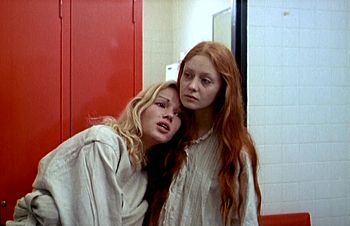
(This is another short reaction to the films in this list. I have now had a chance to see 13 of the 50. When Blake first posted to the list, I had seen four. The first two on the list are on my nightstand. A few others I have found at Seattle’s Scarecrow Video. Some are proving very difficult. Any help procuring the Dore O movie Alaska would be appreciated.)
Another recurring theme from the films on the list is that of identity loss. A film from the last post (Cure) and a film I watched a few days ago (The Night of the Hunted) both had contrasting kinds of identity loss.
Here’s John Clute’s The Darkening Garden: A Short Lexicon of Horror on the subject:
In horror…[Identity Loss] works as a confirmation of the self’s purchase on the present tense of the daylit daily world; it is a marker of Belatedness made visible or to come; it is a signal that the abandoned past (over the last two centuries, most of our pasts have been abandoned) is catching up with us.
Cure’s antagonist has rejected his own identity. When questioned (by those who attempt to help him when they find him wandering aimlessly, by the police who suspect him of murder), he claims no memory of anything. He claims to make few new memories, asking his inquisitors their identities even after they have introduced themselves and never being sure just where it is he is. He claims that all the things that were once within him are now on the outside; that he is a shell.
READ MORE >
1st trip 2 the pub
Ok, George Saunders first published in that little Conde Naste magazine out of New York City. But this was (I think) my first publication. They claim to be “Reviews from Rural America.” The last two pages are poems, and this is where I appear, with a little ditty about squirrel hunting. Mimeographed, 10 pages, 3 staples, out of Healdsburg, CA, a Misty Hill Press production. This was 1996. I can find nothing about the publication now, though I did locate a Misty Hill Press, in another California town.
I was/am happy to begin with a stapled together newsletter. There is a sort of ladder (naturally subjective) to these things, and the process of climbing makes one a more serious/less serious (not a contradiction) and humble writer. Possibly. I certainly look back now at the title and have to give a chuckle. I teach a lot of beginning writers, and many, many of them need to understand it’s a hard row to hoe. Not impossible, just hard. Some of them seem to think the writer’s life is a water slide–just chuck yourself down. Wheeeeeeee. I prefer the image of the dirt field. Here’s your seeds and your gardening tool. Start hoeing and pray for rain.
Where were you first published?
How to Kill a Character
This is how the great Patrik Ourednik kills a character. Let it be a lesson to one and all:
Naiman died as stupidly as he lived. One day he decided to get a new washing machine for the cottage. But what to do with the old one? He loaded it into his car, drove into the forest, and rolled the machine to the top of the hill, intending to push it into a gorge; one garbage dump more or less, the Czech woods had survived worse. But no matter how hard he leaned into the thing, it wouldn’t budge, so, taking a few steps back, he sprinted forward, spinning around and throwing his haunches into it; the washer sailed into the gorge and Naiman along with it. Some nosy hiker discovered the body five days later, and the South Bohemian Tribune ran a brief obituary headlined “Expert Meets Tragic Death.”
Dyk gave a creaky laugh. Memories are the balm of old age.
“Htmlgiant blog post about the use of quotes”
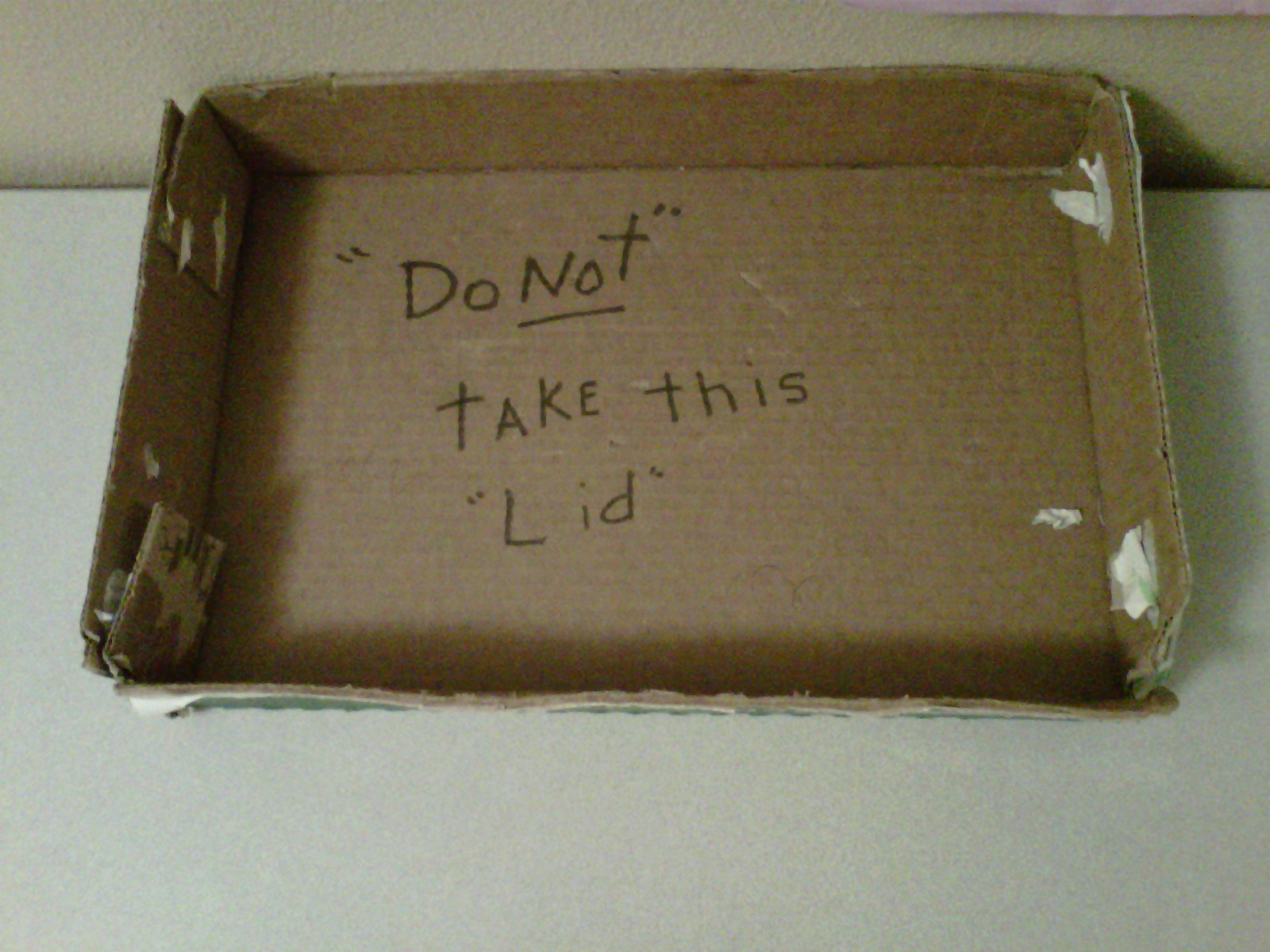
The “Blog” of “Unnecessary” Quotation Marks is a celebration of obtuse and/or excess rhetoric, offered as utilitarian measure by various small-time vendors. I appreciate the joyous examples, given their contrast to the more affected self-conscious use of quotation marks used by writers today. It gets me thinking about the intent of syntax: where meaning is augmented, or even fractured, by the play of the writer. In “Do Not” take this “Lid”, it seems they are conceding to the questionable function of said “Lid,” and asking for liberty in calling it such a thing. “Do Not“ may be quoted to suggest an awareness in the cliche, or maybe in solidarity to it. Notice only the appropriated terms are capitalized, as if the true disposition of such assertion were of a more modest nature. I’m probably reading too into this, I just like thinking about the minutiae of sentences often taken for granted.
Where the Words Come From: A Gmail Fuckoff about Getting Work Done
Ryan: wat else you doing rightnow?
like this instant what ar eyou doing!
i am always curious what you doSent at 1:45 PM on Thursdayme: hahai was laying on the bedthen i got back up and saw your msgi got up cuz i thought of a sentence for this collab thing i am trying to finish a draft ofRyan: hahai seeyou just think sentences?i dont think sentencesi dunnoi cantmy braini dunnome: well i have a set of images the thing is ending withand i had a sentence that resolves one of them occuryeah i think entirely in sentences mostlybut often based out of an initial image or situation of imagesso the sentence kind of falls out of the image in specific wordsbut i dont really think about the wordsor the image
Michael Kimball Guest Lecture Series (6): Acoustics
I hate this quote from Janet Burroway: “Novelists and short-story writers are not under the same obligation as poets to reinforce sense with sound.” I don’t think she understands what Andy Devine does: “Words have acoustical qualities that resonate with being human.”
Fiction begins with language, which is an acoustical occasion. The fiction writer who writes with acoustics uses a kind of close attention. It’s looking hard at the sentence until it opens up. It’s feeling around between words until you find spaces that require new words, new beats. It’s beyond semantics (though it still depends on sense). It’s recognizing the recurring sounds and using them to rewrite a sentence. Maybe the first word in the sentence has a long-o sound in it and the sentence will feel finished if it ends with another word with another long-o sound in it, say, smoke. Maybe the fact that that sentence ends with a hard-k leads to the next sentence beginning with another hard-k sound, so the consonants run together and there isn’t any space between the sentences, not even really a pause, and then all of a sudden the narrative speeds up in a way that feels thrilling and there’s a fire and that story never would have happened if the fiction writer weren’t working with the acoustics. Working with acoustics, it’s a different way to find the right word, or the right place for the right word. It’s a different way to write or revise a sentence or a group of sentences. I like the compositional nature of it.
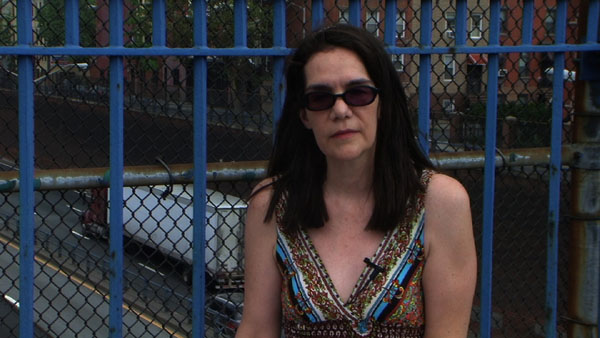
Dawn Raffel
The fiction can sound however you want it to sound, but it’s figuring out what those things are for you, or for the piece you’re working on, and then using those sounds to make something happen in the fiction, even if it’s something that the reader only feels and doesn’t quite know why. I know writers who are partial to glottal stops and other percussive consonants. I know writers who like the liquid consonants and sibilance. And I know one very particular writer who tries to remove all of these acoustical relations, so that no single sentence is repeating any particular sound. I used to focus on assonantial relations within sentences, but now I’m more often looking for them from one sentence to another sentence, a way to get from one sentence to another sentence.


